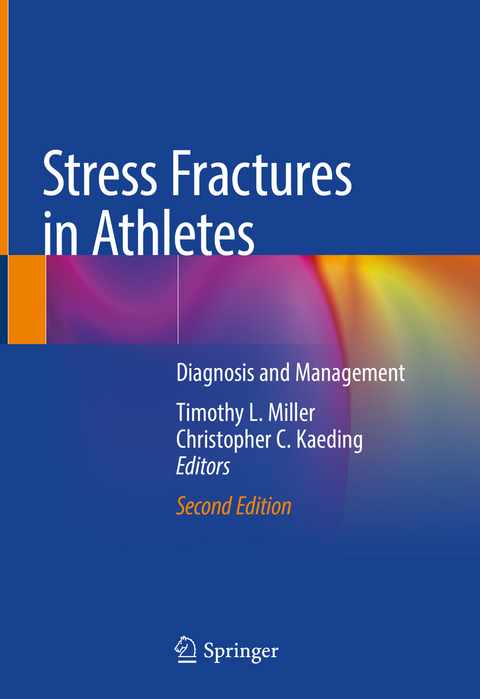
Stress Fractures in Athletes
Springer International Publishing (Verlag)
978-3-030-46918-4 (ISBN)
Now completely revised and expanded, this second edition not only includes updated chapters detailing treatment of the most common and troublesome sites for stress fractures, but also more recent research regarding risk factors for the development of stress fractures. As in the original edition, general principles of evaluation, healing considerations and management strategies are discussed in three thematic sections. However, unlike the previous text, this edition will focus on a holistic approach to the treatment of these increasingly common injuries with new chapters on nutritional optimization of athletes at risk for stress fractures, systemic treatment strategies for healing including vitamin D supplementation and parathyroid hormone stimulation, and surgical and injectable biologic treatment modalities for enhanced bone healing. This edition will also include guidelines for on-the-field and training room management of stress fractures for team physicians.
This revision is timely, given the increasing rate and severity of bony stress injuries encountered in elite and professional athletes related to single-sport specialization and the increased popularity of endurance sports such as cross-fit, obstacle course racing, and ultramarathon competitions. It will be an ideal resource for sports medicine practitioners including orthopedic surgeons, primary care sports medicine specialists, athletic trainers, and physical therapists.
Timothy L. Miller, MD, The Jameson Crane Sports Medicine Institute, Department of Orthopedics, The Ohio State University Wexner Medical Center, Columbus, OH, USA Christopher C. Kaeding, MD, The Jameson Crane Sports Medicine Institute, Department of Orthopedics, The Ohio State University Wexner Medical Center, Columbus, OH, USA
Part I. General Evaluation Principles for Stress Fractures.- Risk Factors for Developing Stress Fractures.- Sideline and Training Room Evaluation for Suspected Stress Fractures.- Pathophysiology and Epidemiology of Stress Fractures.- Diagnostic Imaging Evaluation of Stress Fractures.- Classification of Stress Fractures.- Insufficiency Fractures.- Part II. Maximizing Healing Potential for Stress Fractures.- The Holistic Approach to Stress Fracture Treatment.- Biomechanics and Stress Fractures: Utility of Running Gait Analysis.- Nutritional Optimization for Athletes with Stress Fractures.- Systemic Treatment Modalities for Stress Fractures.- Orthobiologic Treatment Options for Stress Fractures.- Part III. Management of Common Stress Fracture Sites.- Stress Fractures of the Ribs and Shoulder Girdle.- Stress Fractures of the Upper Extremity.- Stress Fractures of the Lumbar Spine.- Stress Fractures of the Pelvis and Sacrum.- Stress Fractures of the Hip and Femur.- Stress Fractures of the Tibia.- Stress Fractures of the Ankle and Hindfoot.- Stress Fractures of the Midfoot and Forefoot.
| Erscheinungsdatum | 10.07.2020 |
|---|---|
| Zusatzinfo | XIII, 285 p. 140 illus., 59 illus. in color. |
| Verlagsort | Cham |
| Sprache | englisch |
| Maße | 178 x 254 mm |
| Gewicht | 750 g |
| Themenwelt | Medizin / Pharmazie ► Gesundheitswesen |
| Medizinische Fachgebiete ► Chirurgie ► Unfallchirurgie / Orthopädie | |
| Medizin / Pharmazie ► Medizinische Fachgebiete ► Sportmedizin | |
| Medizin / Pharmazie ► Studium | |
| Schlagworte | Athletic injury • Biomechanics • Fatigue fracture • gait analysis • Hairline fracture • Insufficiency fracture • Orthobiologics • Overuse injury • Sports injury • Stress fracture |
| ISBN-10 | 3-030-46918-2 / 3030469182 |
| ISBN-13 | 978-3-030-46918-4 / 9783030469184 |
| Zustand | Neuware |
| Informationen gemäß Produktsicherheitsverordnung (GPSR) | |
| Haben Sie eine Frage zum Produkt? |
aus dem Bereich


